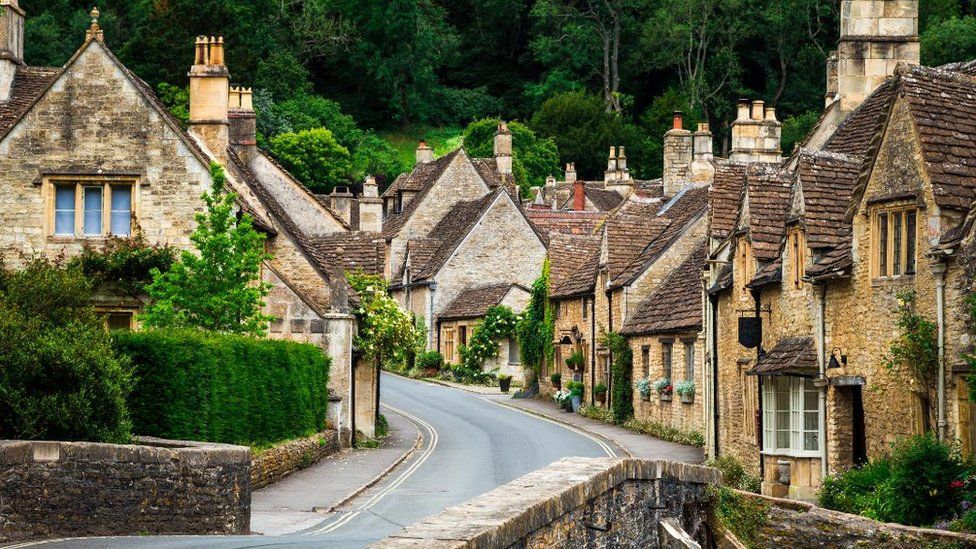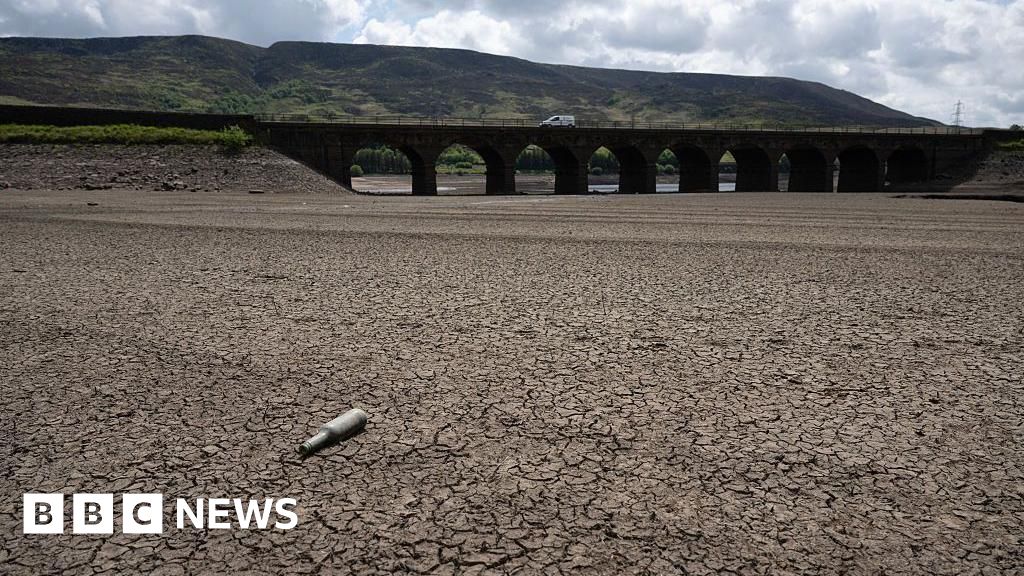ARTICLE AD BOX
 Image source, Getty Images
Image source, Getty Images
Holiday lets and second homes have seen prices rise across the English countryside
By Lucy Vladev and Malcolm Prior
BBC News rural affairs team
Rising house prices in the English countryside have pushed more than half a million people into renting over the past decade, a new report has found.
A 19% increase in rural renting has outpaced rises in London and England's other cities, says local authorities' group, the County Councils Network.
It says house prices in rural counties are the most unaffordable outside London at an average of £309,000.
The government says it is committed to creating a fair housing system.
Image source, BBC/Lucy Vladev
Image caption,Sophie Brown says people moving to the countryside from cities are pricing locals out
In the Cotswolds, which has long attracted the wealthy and famous, locals like Sophie Brown are finding they have been priced out of the property market.
Sophie, who is renting affordable housing in her home village of North Cerney, told the BBC that if she had bought locally it would have cost her around half a million pounds - "standard for the Cotswolds".
"I was lucky to get this property," she said.
"A lot of people are coming from London with their second homes and you've got people like celebrities that are moving into the area and pricing out the normal everyday person with a normal job.
"Local people are having issues trying to buy houses. I think the majority of people are living at home longer, which has its challenges, and a lot of people are in rented accommodation and potentially people are in sub-standard accommodation because they can't afford to have a decent place to live."
Image source, BBC/Lucy Vladev
Image caption,Cara Loukes fears the housing shortage will see local communities die out
It is a region-wide situation that Gloucester Rural Community Council (GRCC), which helped Sophie find her home, has been dealing with.
Cara Loukes, the GRCC's affordable housing manager, said holiday lettings and second-home buying had seen many landlords take properties out of the longer-term private rental sector.
That in turn has seen "more and more people need to move onto council waiting lists" while it was taking years for new affordable rental homes to be developed.
For local people on lower incomes the options were limited, Ms Loukes said.
"You will probably need to rely on friends and family, possibly sofa-surfing, inappropriate rentals - people are living in caravans, insecure housing, garages - or hoping eventually for affordable housing to come through," she explained.
If the situation is not tackled, Ms Loukes warned, "communities will die, socio-economically".
Crisis 'worsening'
The new report by the County Councils Network (CCN) warned that the number of households in private and social rental properties in rural areas has increased by 550,000 between 2011 and 2021.
It found that rented properties - both social and private - now make up almost one third of all housing in England's county council regions.
In private renting, there had been a 31% rise - higher than London's increase of 25%.
The report also found that property prices in those counties are the most unaffordable in England outside of London, with the average price now more than £309,000, that waiting lists for council housing in the countryside increased by 10% between 2018 and 2023 and that temporary accommodation use was up by 52% over the last five years.
Meanwhile, rural homelessness had risen 18% over the last three years.
Image source, BBC/Lucy Vladev
Image caption,Richard Clewer says the CNN is not proposing to "concrete over our countryside"
Richard Clewer, the CCN's housing and planning spokesperson, said: "It is widely accepted that the housing crisis is one that is worsening, with rising unaffordability locking hundreds of thousands out of getting onto the property ladder.
"This report does not suggest that we alleviate these issues by concreting over our countryside.
"Instead it sets out a number of important yet easily deliverable recommendations that, taken together, could accelerate the delivery of new homes of all tenures where there is most need."
The CCN is calling for government to set out a new plan for rural housing, with a greater focus on social housing and a review of the right-to-buy policy that has seen affordable rental properties taken off the market.
A spokeswoman for the Department for Levelling Up, Housing and Communities said it was putting £10bn towards boosting housing supply and £11.5bn into providing more affordable homes.
Although only around 234,000 new homes were delivered last year, she said that the government's target to build 300,000 homes a year remained and that the Renters Reform Bill would "deliver a fairer private rented sector for both responsible tenants and good faith landlords".
"We are committed to creating a fair housing system that works for everyone in both urban and rural areas, including increasing first-time buyer numbers in all regions and boosting availability of new, genuinely affordable housing," she said.

 1 year ago
55
1 year ago
55








 English (US) ·
English (US) ·